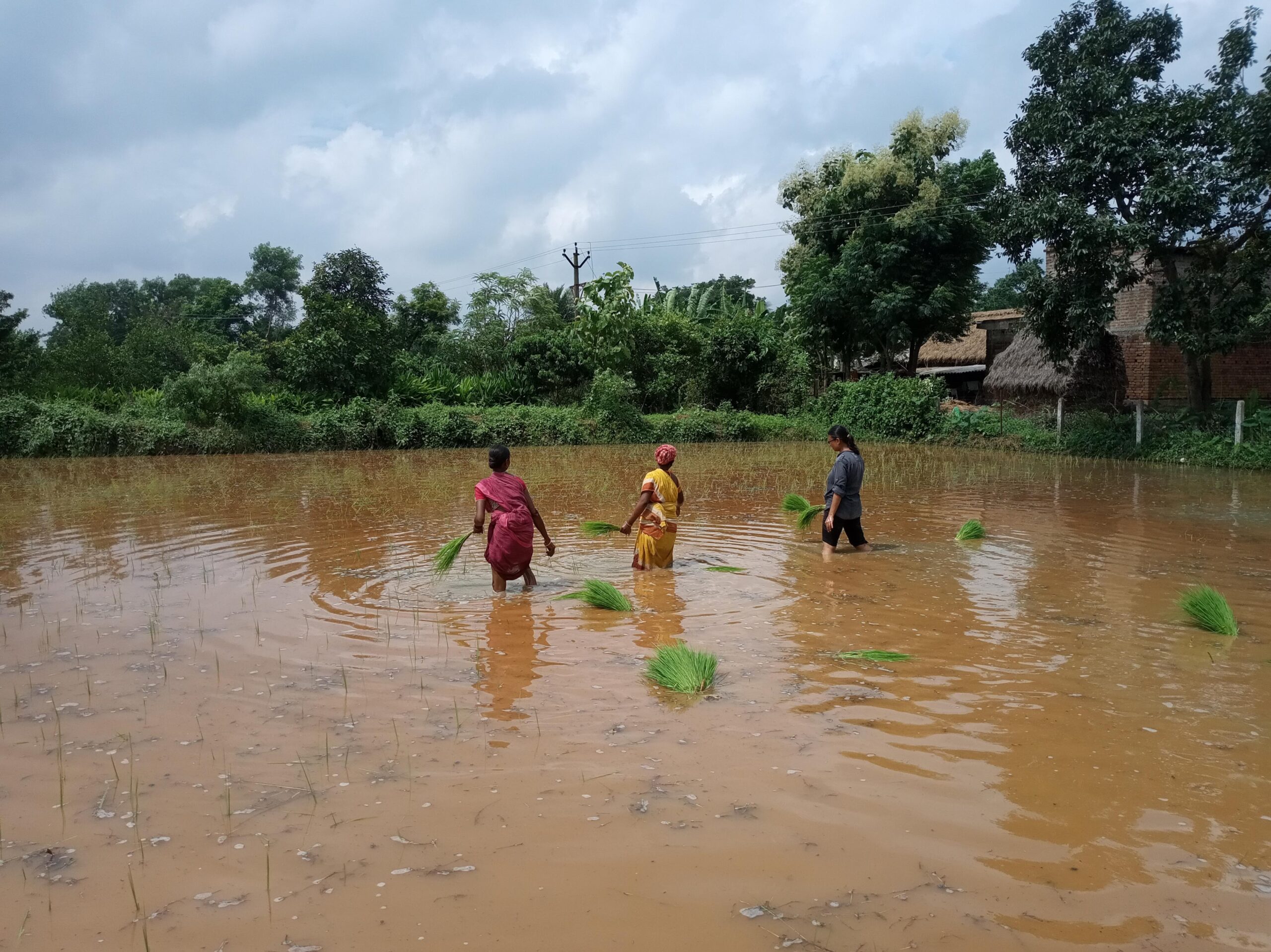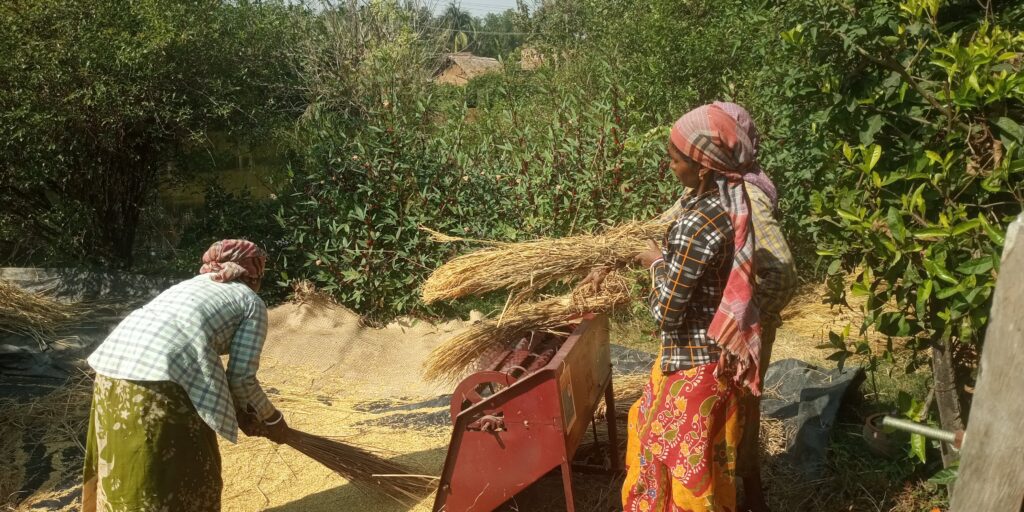

IIE Centennial Fellow Aparajita Sengupta Strengthens Environmental Resilience by Developing Women-Led Local Organic Farms
October 29, 2024
Aparajita Sengupta, IIE Rodman C. Rockefeller Centennial Fellow 2023-2024
IIE Rodman Rockefeller Centennial Fellow Dr. Aparajita Sengupta lives in India and is creating an organic farming and marketing co-operative with 15 to 30 women to develop diverse, climate-resilient agrarian and economic models in rural India. In her second blog entry, Sengupta explores how inequity intersects with climate change in rural India, and details how she aims to address it through her project.
Here in rural West Bengal, rice planting is joyous, fulfilling, and deeply tied to a sense of community among women. Rice is planted almost exclusively by women due to myths and traditional lore about fertility, although men help with ancillary tasks. But rice planting is also hard work; it entails standing in ankle-to-calf-deep water all day with heads bent, taking out seedlings from bundles, and planting them firmly in the clay.
Climate changes—such as droughts and changing planting schedules—are straining the region’s food supply and incomes and intensifying the labor of rice planting itself. The monsoon system—three months of torrential rain that replenishes the entire surface water in this climatic zone—has been a complete no-show this year. This has a huge impact on entire populations in rural Bengal because the economy here depends on rice, the season’s only major crop. Further, every month has seen record high temperatures in India this year; in my area, the temperature has reached as high as 47C, or 116 to 117F.

Food processing and marketing, however, gives the women of West Bengal quite a few advantages; they receive stable income amid rice economy postponements and enjoy shorter working hours in the much cooler settings of processing units and stores. Because my project shifts the focus from the monoculture of rice to a more diverse, perennial-based system in the village, women would be able to find alternative work during the time gap that has been created by the delayed monsoons. At this time, they can focus on creating products out of perennial crops they already have, such as mangoes, jackfruit, and papayas. We will be creating various products out of these seasonal fruits, as well as preserving them with the help of the proposed solar dryer, oven and other equipment.
I envisioned my project as creating alternative and stable forms of income over and above agricultural labor work, and climate change challenges that we are seeing on a regular basis now also seem to indicate that relying on diverse systems might be the best option for economically backward rural groups. The trainings provided through this project has also empowered the women to be able to utilize the natural resources they already had access to, and we have also looked to increase the number of perennial trees in every household with a view to eventually increasing the amount of excess that each household produces. Overall, therefore, the project will be able to create a scope for equitable income for the women of our neighborhood.
Named in honor of IIE’s Centennial and association with the Fulbright Program, the IIE Centennial Fellowship seeks to help enhance Fulbright as a life-long experience and recognize alumni whose work embodies the program’s underlining values of mutual understanding, leadership, global problem solving, and global impact.